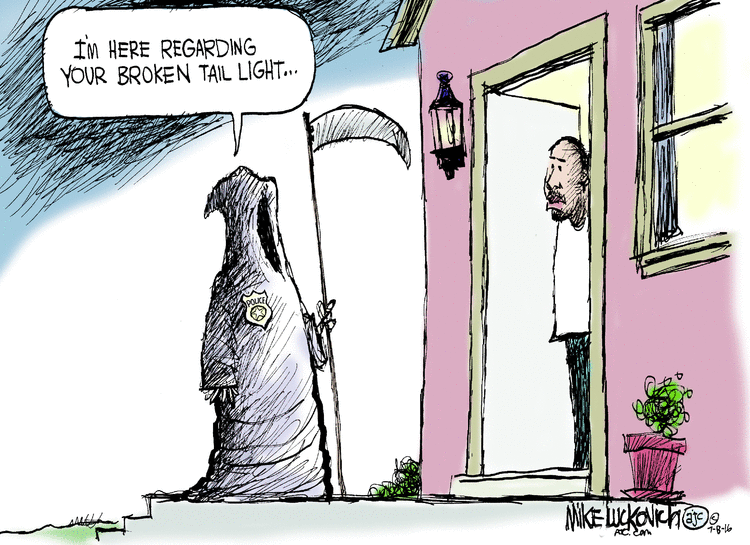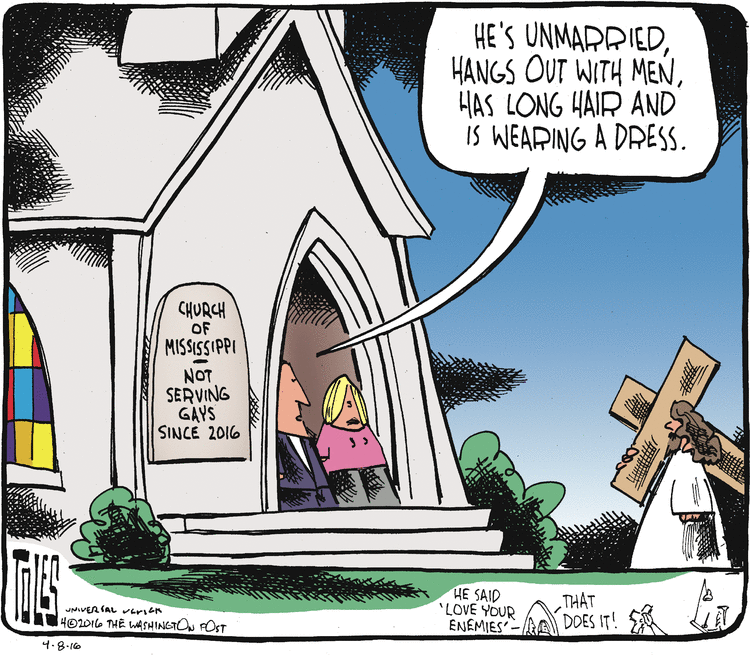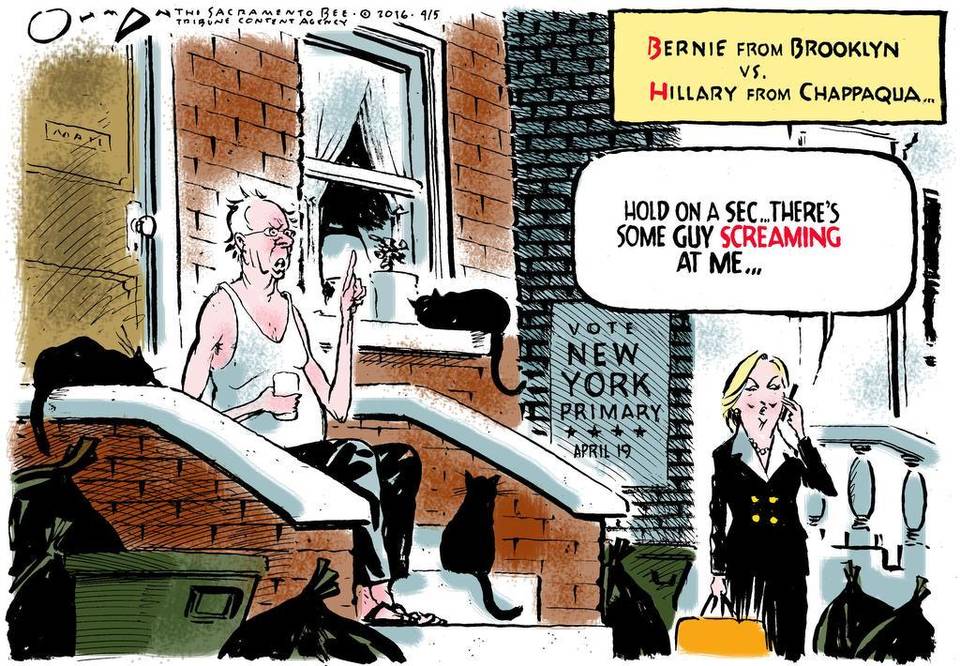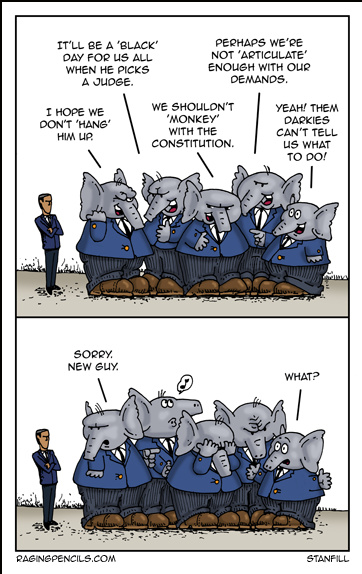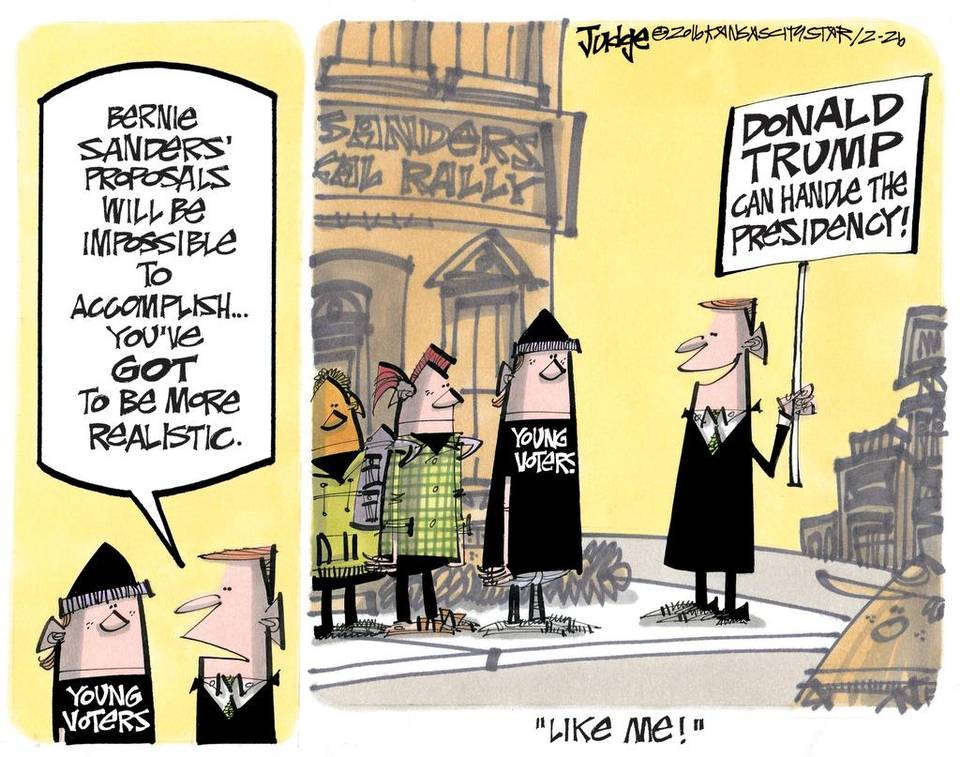By now, most have seen the short speech that packed a wallop by Khizr Khan at the Democratic National Convention in Philadelphia. The speech by Mr. Khan was one of the most difficult/beautiful/gut wrenching 15 minutes of this long campaign season.
When Khan pulled his copy of the Constitution out of his pocket and waved it at Donald Trump, it was only a matter of time before the Pant Load responded. You can count on the Donald. Trump said:
If you look at his wife, she was standing there…She had nothing to say. She probably, maybe, she wasn’t allowed to have anything to say. You tell me.
Khan shot back on CNN’s”State of the Union” :
For this candidate for presidency to not be aware of the respect of a Gold Star mother standing there, and he had to take that shot at her, this is height of ignorance…
Trump then went on to say that he had made a lot of sacrifices by, ya know, hiring people and stuff. That led to a twitter storm carried on the hashtag: #TrumpSacrifices. While there are many funny tweets, Paul Begala, CNN commentator and advisor to a pro-Clinton Super PAC, wrote:
Once survived an entire weekend at Mar-a-Lago with just one can of hairspray.
Or this, Wrongo’s favorite:

OMG, THAT’s what Trump wants to get out of this: He wants to be Kevin Spacey with a comb-over!
Thank you, Khizr Khan for reminding our country that we are founded on what should be a sacred document that lays out how we should live in a society based on justice. And thanks for the sacrifice of your son Humayun, lost while taking part in an ill-advised war:

Donald Trump needs a wake-up call for his shocking lack of knowledge of the US Constitution. Let’s start with a list from the WaPo that shows Trump doesn’t know the Constitution:
- He wants to “loosen” libel laws, so he could more easily sue news organizations who write “nasty” articles about him. There are centuries of First Amendment jurisprudence that would restrict his ability to do this.
- He’s said he would push military commanders to go further than water boarding, even though it has been banned by federal law.
- Many scholars believe Trump’s proposed ban on Muslims would be struck down as unconstitutional (due process, equal protection, religious freedom, etc.).
- He insisted on “Meet the Press” earlier this year that the 14th Amendment does not guarantee birthright citizenship.
- His attacks on Judge Gonzalo Curiel over his Mexican heritage show his lack of respect for an independent judiciary.
- Trump has at times suggested that he might somehow be able to initiate the prosecution of Hillary Clinton over her emails if he’s elected. In March, asked about the kind of Justice he’d name to the Supreme Court, he said he’d:
Probably appoint people that would look very seriously at [Clinton’s] email disaster because it’s criminal activity.
A signal he doesn’t understand the role of each branch.
To help wake up the Donald, here is a hip hop tune about the Constitution by Smart Songs, an organization that provides kids and teachers with positive, educational hip hop, to help make learning fun. We chose this because Trump needs to start with an elementary education about the US Constitution, and work up from there:
For those who read the Wrongologist in email, you can view the video here.




